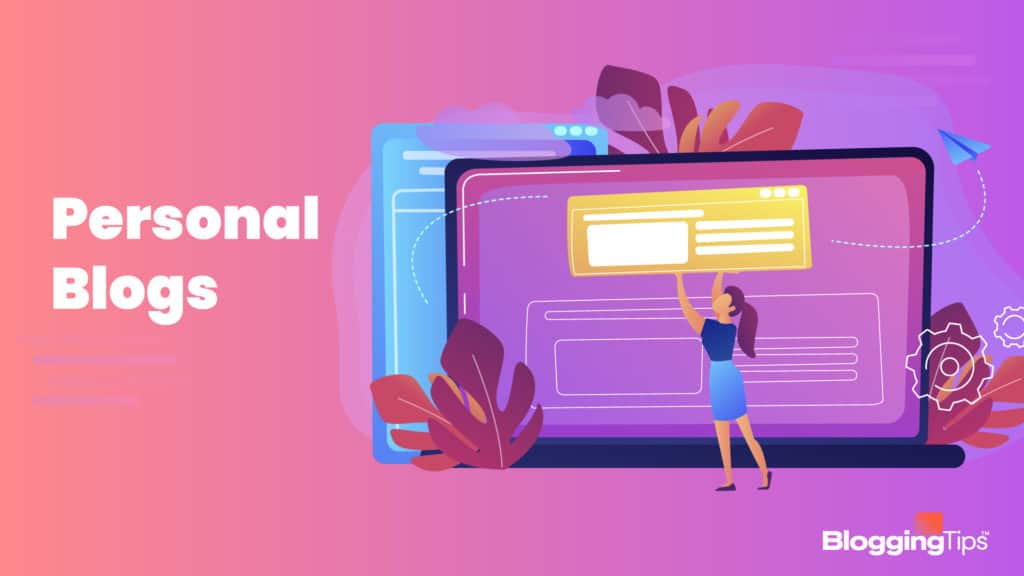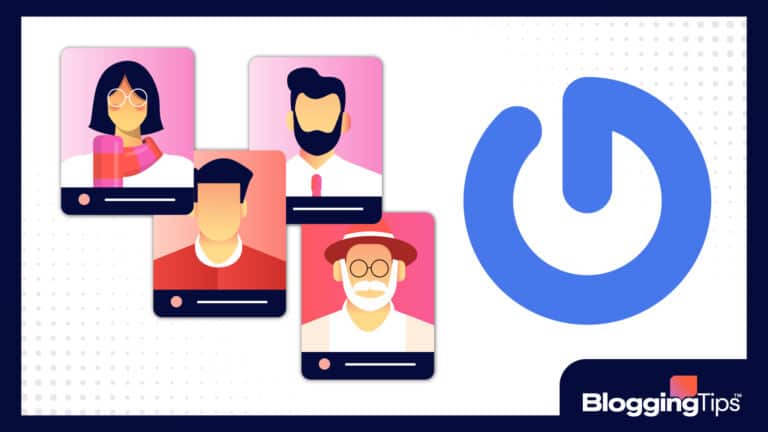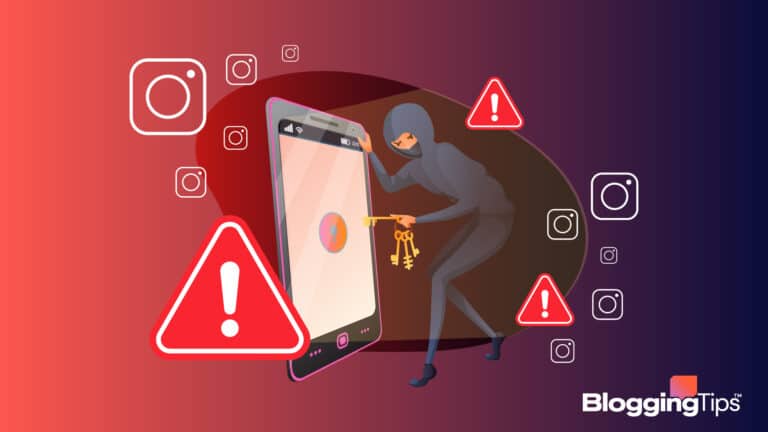Have you been writing casually for years and want to shift to something you can share with others?
A personal blog is an excellent way to share your life, knowledge, and experiences with others.
Fortunately, the steps needed to launch a blog aren’t extensive.
If you’re interested in starting your blog, stick around.
We’ll cover everything you need to know to get your brand off the ground.
- What is a Personal Blog?
- Reasons for Starting a Personal Blog
- Personal Blog Contents & Features
- Can a Personal Blog Be Successful?
- Personal Blog Examples
- Alternatives: Similar Types of Blogs
- Where Do I Start a Personal Blog?
- What Should I Post on My Personal Blog?
- How to Start a Personal Blog
- Frequently Asked Questions
- Wrapping Up
What is a Personal Blog?
Personal blogs are blogs created by individual authors, as opposed to businesses.
Authors will write about whichever topic they choose, such as personal experiences, and market their blog to others.
How Does a Personal Blog Work?
A personal blog functions similarly to a professional one.
Authors use their blog platform to publish posts on a chosen topic.
Typically, the topic relates to the author’s life in some way, and in many cases, authors will monetize their content.
This is oftentimes done using their own personal brand or persona in which they sell or promote something.
Can A Personal Blog Make Money?
Many bloggers choose to monetize their blog content.
They do this via affiliate marketing, advertisements, or offering products or services for a fee.
However, it can take time and significant effort before bloggers make a living off their content.
Reasons for Starting a Personal Blog
Although there are countless reasons for starting a blog, here are a few of the most common reasons authors choose to publish content.
1. Sharing Your Passions With Others
Many bloggers choose to start blogging as a way to share their passion with others.
For example, avid gardeners will often have blogs where they discuss recent gardening news or publish reviews to readers.
2. Venting to The World
Blogging started as a digital journal of sorts called a weblog.
The modern form of the digital journal is blogs that authors use to vent to the world.
For example, some writers might pen their thoughts about politics, while others might share personal life frustrations.
3. Networking With Others
Blogging is an excellent way to build a community of like-minded people online.
Authors start blogs to network with other writers, readers, and industry professionals.
When you want to create a business venture, you need a network. Blogging is an excellent place to start.
4. Developing Future Business Opportunities
If you’re just starting in your field, a blog can help you develop future business opportunities.
It’s common for bloggers to offer a product or service to readers, and starting a blog can help lay the foundation for those business ventures.
5. Just Getting Your Name Out There
A final reason authors create blogs is to simply get their name out there.
Whether you want to start a business, build a new online village, or create a portfolio, a personal blog is an efficient way to tell people who you are.
Personal Blog Contents & Features
Personal blogs can contain all types of content.
However, there are a few pieces of content and several features a good blog should never be without.

Essential Pages on a Personal Blog
Your blog is a website that’s an extension of you.
Therefore, every page should reflect who you are.
The pages you want to be sure to include are:
- About
- Contact
- Products or Services (if applicable)
- Terms of Service
- Disclaimer
- Privacy Policy
- Archives
- Employment page (if applicable)
Each page on your blog impacts your user’s experience.
Therefore, they should all have a purpose and be easy to navigate for the best results.
Topics Covered on a Personal Blog
Personal blogs can cover any topic you can imagine.
From pet care to childcare, culinary pursuits to book reviews, there’s a reader itching for knowledge on any topic.
So, take time to find something you’re passionate about to ensure you enjoy the blogging process.
Can a Personal Blog Be Successful?
Personal blogs can be just as successful as professional or business blogs.
However, marketing your blog and building your following might take longer without the clout of a business behind you.
Still, with total dedication, you can successfully monetize your content.
Personal Blog Examples
If you’re interested in looking at a few personal blog examples, you can check out our full list of popular personal blogs.
Below, you’ll find a few others that are worth noting.
1. Dad or Alive
First-time dads will find heaps of helpful information for navigating those frightening first few years on Dad or Alive.
Written by a stay-at-home dad, this blog focuses on helping new dads ease into fatherhood.
2. Dogalize
Pet blogs are a popular source of information for current or potential pet owners, which is why Dogalize is so great.
Dogalize takes a fun, informative approach to educating pet parents.
3. Kimchi Mamas
If you want inspiration from a blog that isn’t focused on monetization, Kimchi Mamas is a great place to start.
Six Korean American mothers got together to create a blog that touches on all topics that affect Korean American citizens.
4. Beautiful Books
Beautiful Books is a book blog that provides detailed information for casual book collectors.
The author prides herself on being one of the first to let collectors know about special editions and bookish news that can help readers build their collections.
5. Tech Savvy Mama
Tech Savvy Mama is a blog about mothering in the internet and social media age.
She focuses the bulk of her content on parenting. However, she also provides information on other topics, including technology and education.
Alternatives: Similar Types of Blogs
Other blogs that are similar to personal blogs include lifestyle, pet, and travel blogs.
Each of these takes the personal blog one step further by turning a personal interest into a source of income.
- Lifestyle Blogs: Examples of lifestyle blogs include cooking, finance, organization, and fashion. Bloggers running these sites might provide detailed reviews for products and services while sharing personal stories about various topics.
- Pet Blogs: If you’ve ever considered blogging about pets, you aren’t alone, which means you need to find a good niche. For example, if you’re a dog lover, you could write a blog on dog training. Then, monetize your content using affiliate programs or ads.
- Travel Blogs: Any traveler who likes to have a detailed itinerary when they travel knows how valuable travel blogs are. They’re an excellent place to find information on deals, events, and tips for traveling.
Where Do I Start a Personal Blog?
When choosing a personal blog, you’ll have plenty of platform options.
However, we’d highly recommend you choose a managed WordPress host from the start and use it with WordPress.org.
This combination provides for all-in-one blog management and hassle-free hosting.
What Should I Post on My Personal Blog?
There’s no hard-and-fast rule about what you should post on your blog.
That said, writing what you know is always best.
If you’re passionate about a topic, you can be sure others are, too.
How to Start a Personal Blog
Not sure how to start a blog? Don’t worry.
Although there are a lot of steps involved with blogging, you can do it with some time and effort.
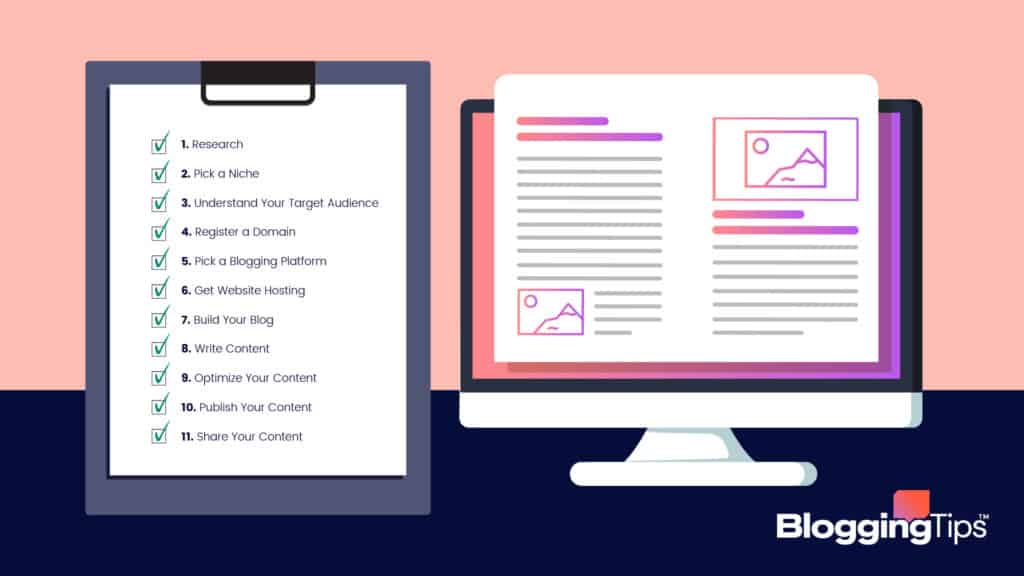
1. Pick a Blog Name
First, pick a blog name.
This might seem like a no-brainer, but that quirky name you’ve had in mind might not be available.
So, make a list of names, then do a quick search to find which ones are available.
2. Develop and Refine Your Brand
Brand development is one of the most time-consuming processes for bloggers.
From logos to language to aesthetics, you need to stand out.
For best results, you might want to consult with a professional to get started building your brand.
3. Register a Domain Name
Register your domain name as soon as you choose your blog’s name, and make sure the two names match.
For example, if you chose “Dog Training 101” for your title, choose a matching domain.
If it isn’t available, reassess your chosen name.
The best domain registrars usually cost around $10 per year, so this is very affordable for even the most frugal bloggers.
4. Get WordPress Hosting
Once your name and domain are handled, it’s time to host your blog.
WordPress is a popular choice for bloggers because it’s versatile, user-friendly, and robust.
It also has excellent branding options.
We suggest going with one of the best managed WordPress hosts, as it saves you time and money in the long-run.
5. Install a Theme
When choosing your WordPress theme, make sure it mirrors the brand image you want to project.
Aim for something aesthetically pleasing but is unmistakably you.
6. Start Writing!
Finally, you can start writing. Your best bet is to write several blog posts before launching your site.
This will give you some breathing room in those first few weeks or months to work out any kinks.
Frequently Asked Questions
Here are the answers to a few common questions about blogging.
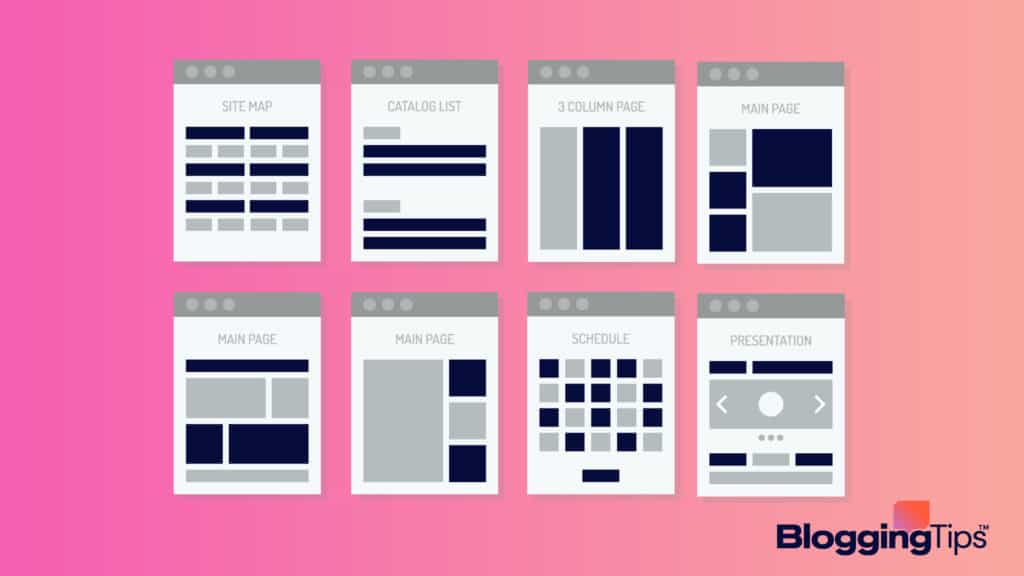
What type of blog makes the most money?
Realistically, any blog can make money.
It’s all in how you market it and whether or not your content is valuable.
Still, it takes time, money, and patience to make a living from blogging.
Are personal blogs still a thing?
Personal blogs are some of the most popular blogs on the internet.
Readers love getting advice from real people and not just businesses.
As long as that remains the case, personal blogs won’t go anywhere.
Wrapping Up
Hopefully, this article gave you insight into how exciting and easy starting a personal blog can be.
If you follow the steps listed here and understand success won’t happen overnight, you’ll be on the right path forward.
Do you have a question or experience you’d like to share? Drop a comment below to reach out.
